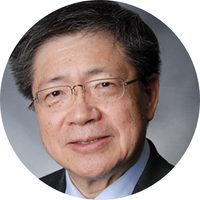
In what ways are universities effectively preparing students for careers in industry? And what are some areas where universities could be more helpful in this regard?
In general, I think the universities are doing a great job preparing students with scientific information. I know the undergraduate chemistry curriculum is jam-packed with all the topics they need to cover. The graduate program is typically filled with required courses and thesis research, and both are important from the point of view of training and research experience. Many universities also encourage undergraduates to get involved in research at an early stage in their studies.
As for the preparation of students for industry careers, I believe this varies quite a bit, depending on the university, the professors, and the students. Some schools and professors are well connected to industry, and some are not. If a school wants to help students with industrial careers, one possibility is to hire an industrial coordinator (or a retiree or volunteer who has industrial experience) to pull the information together on industrial companies whose products may overlap with the research areas of the school’s faculty. Preferably, the coordinator serves as the local contact for these companies and encourages recruitment at the school. The coordinator may invite relevant industrial scientists to give seminars in their department to broaden students’ perspectives. If sufficient lecturers can be assembled, a course on industrial chemistry may be helpful.
Of course, actual industrial work by the students is the best option. Summer internships in industry or part-time industrial jobs (i.e., co-op opportunities) could also be helpful. A successful work-study model used by a few universities (e.g., Northeastern University) allows studies to gain industrial experience while completing their course requirements.
A lot of the research has become interdisciplinary and may involve learning fields other than the student’s major discipline. There is also an increasing trend to let students learn in groups at universities. This allows them to effectively learn from each other to better understand new concepts. This will also help them work in teams during their industrial careers.
Whereas the university can provide better services and opportunities, ultimately students need to take the initiative. In addition to scientific information, soft skills (i.e., communication, time management, project management, and people skills) are important to industry (and other jobs as well). Since these skills are not usually taught within chemistry courses, students should be encouraged to explore these and related topics within other departments or extra-curricular activities.
In addition, often the best performers in industry are not only competent in their research specialty, but they have a solid basic understanding of related technical fields. Moreover, it would be useful for students to have some background in business-related topics, such as industrial trends, marketing strategies, and communication and supervisory skills.
If a group of university students asked you to briefly describe the pros and cons of a career in industry, what would you tell them?
Since most of the chemistry professionals work in academia and industry, I’ll concentrate my comments on these two employment sectors. My comments will be general because companies might differ depending on their size, nature of the business, management style, workplace culture, and other factors. Likewise, educational institutions may vary from one to another.
- Intellectual Freedom. In general, those in academia have more freedom to choose research areas, based, of course, on available funding. The scope and the duration of research programs are also discretionary to some extent. In industry, however, most research jobs are mission-directed. Often, the researchers are assigned specific projects with milestones and tight deadlines, although there can be some flexibility. In any case, most industrial research assignments are based on product or process development.
- Compensation. According to C&EN salary surveys, industrial jobs on the average tend to pay better than academic jobs. In practice, the salaries can vary and depend on individual situations, company size, nature of job, performance rating, years of service, and other factors. Those in academia can sometimes augment their salary by consulting, writing, and establishing outside companies, which are not allowed in industrial settings.
- Work-life balance. For an assistant professor in a research university, life can be very hectic. Typically, he or she is expected to teach, set up the lab, train graduate students, get research grants, publish papers, and carry out department and community services. In industry, the situation is variable. Some companies are more demanding on their employees and some companies less so.
- Research results. In academia, publish-or-perish is often the rule. Some schools use a researcher’s h-index and journal impact factors for tenure and promotion decisions. In contrast, the primary goal of industry is profit. For most companies, there is more emphasis on developing products and filing patents than on publishing articles. For both academic and industrial jobs, creativity and productivity are valued, but the results can be different.
- Career advancement. In academia, most people start at the assistant professor level, then get promoted to associate professorship, followed by full professorship over time. A few people may take on administrative roles such as department chair, dean, provost, or vice president. In industry, there is usually a wider array of career options, including research, management, sales, marketing, manufacturing, business development, and various support functions. Thus, if an employee wants to do something different, he or she can seek transfer opportunities within the company. Many companies have the dual-ladder system, one for scientific and one for management.
- Impact. In academia, researchers require a high degree of motivation to initiate worthwhile projects and then follow through by promoting their work at meetings and by publishing. If successful, recognition (like awards and promotions) will follow. In industry, researchers often focus on projects that lead to products or processes having financial impact on the company. Because an industrial project is often a team effort, recognition is shared. Whereas this may detract from individual recognition, the shared responsibility of the team can reduce the pressure of having to produce results individually.
- Job security. Once tenured, most university professors can stay at work, sometimes even beyond the typical retirement age. Industry does not have the tenure system. The best way to maintain job security is to increase one’s knowledge and be flexible, i.e., to be able to work in different technological (or application) areas.
How can ACS play a more meaningful role in preparing students for careers in industry?
It seems that ACS has already been helpful in preparing students. For example, the ACS Leadership Institute and its courses are very useful to teach the soft skills needed by industrial members. If someone volunteers for ACS activities, he or she can gain hands-on experience in leadership, communication, event planning, publicity, problem solving, and adaptability. By participating in ACS activities, one can freely network with industrial colleagues, learn from one another, gather useful information, and provide mutual help when needed.
Another important service that ACS provides is the ACS Career Navigator™, which provides guidance to career paths and valuable resource for different employment opportunities (including industrial positions).
As for additional activities, perhaps ACS can offer courses (which can be put online) on industrial chemistry. Since almost half of the chemistry graduates now work for smaller companies, workshops and courses on management training and entrepreneurship could be helpful. As I noted before, summer internships in industry or part-time industrial jobs prove useful. Perhaps a database can be created at ACS to match summer internship opportunities with interested students.
If you were currently in your junior year working your way toward an undergraduate degree in chemistry, what sort of things would you be thinking about in terms of assessing career options?
As a first step, one should be aware of all available career opportunities. Of course, academia, although highly competitive, is an excellent career option, with 42% of ACS members in that sector. And about 45% of ACS members are in industry, which encompasses many types of jobs. There are lab jobs for sure, including principal investigators, support scientists, and technicians, but there are also plenty of opportunities outside the lab, including management, sales, marketing, patents, licensing, information, computation, design and analysis, health/safety/regulatory affairs, legal, and others. The third significant sector is government, accounting for about 8% of ACS membership, ranging from lab research to program management, policy analysis, regulatory compliance, human resources, and staff support. Yet another category includes small businesses, such as entrepreneurs, independent laboratories, service providers, and consultants. There are also many other career options, e.g., pre-college teaching, forensic science, health/environment/safety, technology transfer, patents, venture capital, nonprofit organizations, science policy and science diplomacy, funding agencies, scientific publishing, and science journalism.
Before deciding on a career option, one may want to consider three factors: 1) career interests, 2) knowledge and abilities, and 3) the current and future market opportunities. The key is then to match all three factors, finding the optimum combination. For example, if someone has a strong interest in an area with good market potential, but lacks the appropriate knowledge or skill set, this assessment will at least indicate which areas of chemistry require more attention.
For example, if you are interested in analytical chemistry and have done very well in these types of chemistry courses, but not interested in academia, you can consider a career as an analytical chemist in industry, government, or independent labs, analyzing food, chemicals, or pharmaceuticals. Opportunities in analytical chemistry are often available, since many organizations need analytical chemists to carry out analysis for regulatory compliance, R&D support, technical service, or quality control.
Don’t forget that ACS is an outstanding resource for employment opportunities, relating to job searches, career development, and networking. You can also learn from more experienced chemists, seeking their advice and input on career and scientific questions. You may want to keep an eye on what R&D areas are new and up-and-coming, so that you can keep them in mind as possible future career options.
For chemistry undergraduates eyeing a career in industry, in what instances would you recommend pursuing a graduate degree?
I believe this is an individual decision, and each person needs to consider his or her philosophy of life, career interests, family considerations, knowledge, skills, and abilities. If someone is interested in doing research, it is preferable to get a PhD. If someone is not sure, one option would be a master’s degree. If the grad school experience is favorable, one may want to continue a doctoral program.
Now, the industrial starting salary of a PhD or MS chemist is usually higher than that of a BS chemist. Moreover, a beginning BS chemist is frequently given a lower position in the research department than a PhD, and recognition and advancement may also lag. Thus, if a BS chemist wants to get ahead in the research department, it is often advantageous to pursue a graduate degree.
As we know, industry needs a lot of talent in different capacities. Except for a start-up, the research department is usually a small part of a company. Manufacturing and sales usually involve a lot more people, do not require PhDs, and the opportunity for advancement is just as good as with research. There are also other possibilities, such as management, marketing, patents, licensing, information, and health/safety/regulatory affairs. For example, during my years in industry, I knew some chemists who came with BS degrees, then went to business school, and eventually became managers and business directors. Thus, if you have a BS degree in industry, you need to keep your options open for other possibilities. Whatever you do, one piece of advice that is always relevant: Learn quickly, work hard, and (if possible) try to excel at your job.

H.N. Cheng obtained his B.S. from UCLA and his Ph.D. from the University of Illinois at Urbana-Champaign. In his R&D work, he has been active in developing and promoting green polymer chemistry as a platform to produce eco-friendly and sustainable products. As part of this work, he has been involved with the use of biobased materials, biocatalysis, green processing, and green methodology. He has also done a lot of work on polymerization theory and polymer NMR.
He is currently a Research Chemist at USDA Southern Regional Research Center in New Orleans. Prior to 2009, he was Senior Research Fellow at Hercules Incorporated (now Ashland, Inc.) in Wilmington, Delaware, where he held various R&D and managerial positions. He has authored or co-authored over 290 papers and 26 patent publications. He has organized 45 symposia at national meetings since 2000 and edited 23 books.
He was selected as a Fellow of the American Chemical Society (ACS) (2009), a Fellow of the ACS Polymer Chemistry Division (2010), and a Fellow of the ACS Agricultural and Food Chemistry Division (2018). He was the recipient of ACS Volunteer Service Award (2016), Tillmanns-Skolnick Award for Outstanding Service from the ACS Delaware Section (2006), Distinguished Service (2005) and Special Service (2015) Awards from ACS Polymer Chemistry Division, and ACS Delaware Section Award for research excellence (1994).
This article has been edited for length and clarity. The opinions expressed in this article are the author's own and do not necessarily reflect the view of their employer or the American Chemical Society.
















